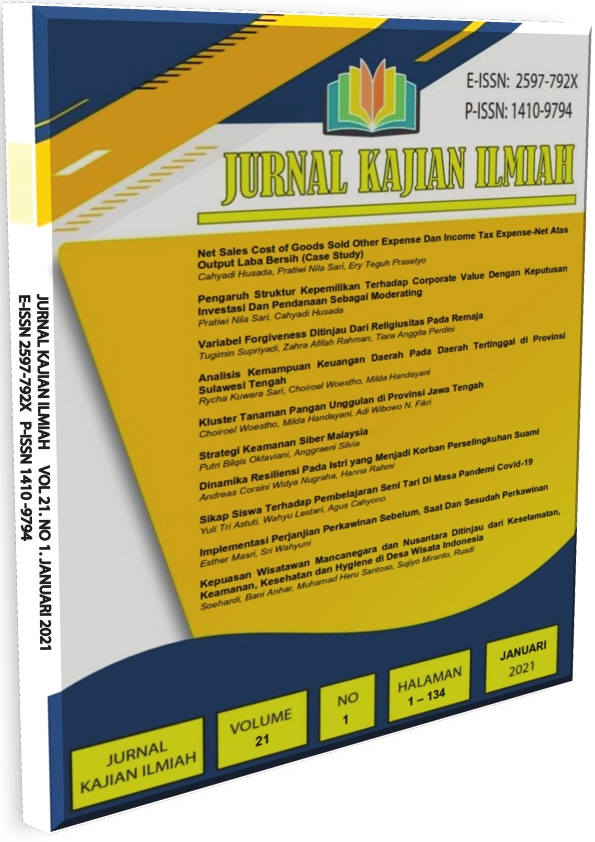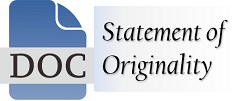Transformasi Pemolisian Demokratis di Papua
DOI:
https://doi.org/10.31599/wxrkwz31Kata Kunci:
Democratic, Papua, Policing, TransformingAbstrak
The aim of this research is to see the potential of optimizing the democratic policing approach in Papua in creating Papuan security stability that is inclusive, based on community involvement, and involved in fulfilling social demands. The research method used in this research is a qualitative research method using interview data collection techniques. In the implementation of conflict policing in Papua, it can be a simulacra in transforming the style/model of policing to be more democratic which produces outputs in overcoming conflict in Papua. The democratic policing that is expected to be achieved in Papua also indicates fundamental changes in policing styles that require intervention at the macro, meso and micro levels in the implementation of policing in the context of conflict management in Papua.
Unduhan
Referensi
Anderson, B. (2015). Papua’s insecurity : state failure in the Indonesian periphery.
Bobby Anderson. (2018). Violent Death in Indonesian Papua. https://www.academia.edu/37803969/Violent_Death_in_Indonesian_Papua_Draft_
Haberfeld, M., & Cerrah, I. (2008). Comparative Policing: The Struggle for Democratization. https://doi.org/10.4135/9781483328997
Indarti, E. (2022). Penegakan Hukum, Perpolisian Masyarakat Dan Pewujudan Keamanan: Suatu Kajian Filsafat Hukum. Masalah-Masalah Hukum, 51(2), 141–152. https://doi.org/10.14710/mmh.51.2.2022.141-152
Karnavian, M. T., & Sulistyo, H. (2017). Democratic Policing. Pensil.
Kelling, G. L., Wasserman, R., & Williams, H. (1988). Police Accountability and Community Policing. Perspectives on Policing. Perspectives on Policing, 7(November), 8.
Kipp, J. W. (2007). A Review of: “Francoise Dauce and Elisabeth Sieca-Kozlowski.” The Journal of Slavic Military Studies, 20(1), 159–162. https://doi.org/10.1080/13518040701205886
Marhaen, D. (2022). Demokrasi Tak Dapat di Raih di Papua. https://bandungbergerak.id/article/detail/2541/demokrasi-tak-dapat-diraih-di-papua
Mingardi, G. (2007). The role of Intelligence work in the control of Organized Crime. Estudos Avançados, 21(61), 51–69. http://www.scielo.br/scielo.php?pid=S0103-40142007000300004&script=sci_arttext
Nye, J. S. (2008). Public Diplomacy and Soft Power. The ANNALS of the American Academy of Political and Social Science, 616(1), 94–109. https://doi.org/10.1177/0002716207311699
Pedrason, R. (2021). Tantangan Intelijen di Papua Menghadapi Evolusi Gerakan Papua Merdeka. Jakad Media Publishing.
Prayitno, S. (2019). Penanganan Pasca Konflik Sosial di Lampung Selatan (Studi Pada Wilayah Polda Lampung). Cepalo, 3(1), 35. https://doi.org/10.25041/cepalo.v3no1.1788
Reisig, M. D., & Kane, R. J. (Eds.). (2014). The Oxford Handbook of Police and Policing. Oxford University Press. https://doi.org/10.1093/oxfordhb/9780199843886.001.0001
Skilling, L. (2016). Community policing in Kenya: The application of democratic policing principles. The Police Journal, 89(1), 3–17. https://doi.org/10.1177/0032258X16637372
Stoughton, S. W., Noble, J. J., & Alpert, G. P. (2020). Evaluating Police Uses of Force. NYU Press.
United Nations Office on Drugs and Crime. (2011). Handbook on Police Accountability, Oversight and Integrity. In Criminal Justice Handbook Series. www.unodc.org
Worden, R. E., & Dole, C. J. (2019). The Holy Grail of Democratic Policing. Criminal Justice Ethics, 38(1), 1–28. https://doi.org/https://doi.org/10.1080/0731129X.2019.1586217












_-_Copy1.jpg)




